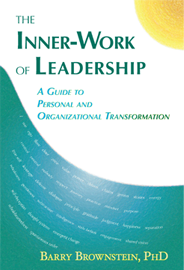Consider this staggering statistic: In 2007 total credit market debt as a percentage of U.S. GDP was 343%–the highest in history. Yet day after day we hear “experts” pronouncing that the cure for our current economic troubles is to lower interest rates further—having the effect of creating even more debt.
We still do not have the collective understanding that a society grows rich by saving money and producing goods and services—not by extending artificially cheap credit. And since we lack that understanding, calls for bailouts of housing and other markets will continue.
Last week, Dallas Federal Reserve president Richard Fisher got it right when he said, “Our job is not to bail out imprudent decision makers or errant bankers, nor is it to directly support the stock market or to somehow make whole those money managers, financial engineers and real estate speculators who got it wrong. And it most definitely is not to err on the side of Wall Street at the expense of Main Street.” Unfortunately, Fisher is a lone voice in the Fed woods.
Although the term “bubble” is usually reserved for financial assets, if we understand a bubble to be fueled by unsustainable spending, we can understand there are other “bubbles” waiting to burst.
There is a health care bubble. Health care costs have risen to unsustainable levels. There are many reasons for this, but one that cannot be ignored is the fact that the current health care system does not encourage patient responsibility. An analogy would be if most automobile owners did not have even a basic knowledge of automobile maintenance and their foolishness was covered by insurance. Suppose most automobile owners never changed their oil; when their engines seized up, insurance simply paid for new ones. Suppose those who advocated common sense maintenance were routinely criticized for their unproven ideas. The outcome is clear—automobile expenditures would explode. All well and good, if you are a provider of engines and automobiles; not so good for the rest of the economy.
In Reclaiming Our Health, John Robbins writes:
I have come to realize that while doctors and medical technology have an important role to play in healthcare, they do not hold the ultimate secrets to health. Taken together, factors such as the food we eat, whether and how we exercise, the way we give voice to our feelings, the attitudes we hold, and the quality of the environment which we live are far more important to the quality of health we experience than even the most sophisticated medical technologies. It had been liberating to see that health comes from learning to live in vibrant harmony with ourselves, with the natural world, and with one another.
To understand how far we are collectively from understanding the basis of health that Robbins describes, consider Mike Huckabee’s weekend campaign quip in which he criticized Mitt Romney for peeling the skin off of his fried chicken: “I can tell you this, any Southerner knows if you don’t eat the skin don’t bother calling it fried chicken.” Without a health care “bubble,” in a country where heart-disease and obesity was common, presidential candidates would not be encouraging the consumption of toxic food.
There is an energy bubble. On a free-market there would never have been one gallon of ethanol sold in the United States. On a free-market there would never have been one nuclear power plant. Ethanol and nuclear energy are creations of complex subsidies. The capital that is being drained away by nonviable forms of energy helps to prevent entrepreneurs from discovering the next breakthroughs in energy. Just as no one had to direct entrepreneurs to discover oil as a replacement for whale blubber, government cannot direct the discovery of replacements for fossil fuels. The marketplace is in a continuous process of discovery; and no one knows whether solar energy, fusion energy, fuel cells, or a form of energy that we have never even heard of will be the replacement for fossil fuels.
Unfortunately, the energy bubble is still in its infancy. Just read this grab bag of energy promises that President Bush called for last night in his State of the Union address:
To keep our economy growing, we also need reliable supplies of affordable, environmentally responsible energy. Nearly four years ago, I submitted a comprehensive energy strategy that encourages conservation, alternative sources, a modernized electricity grid, and more production here at home — including safe, clean nuclear energy… And my budget provides strong funding for leading-edge technology — from hydrogen-fueled cars, to clean coal, to renewable sources such as ethanol.
There is an education bubble. These are glorious times to be an educator, if you are an associate superintendent or deputy superintendent or some other school administrator. Many of these jobs involve duties that, at best, are vague, and at worse, interfere with quality, classroom instruction. Yet all across the country, administrative budgets for public schools have exploded. If you have one of these jobs your livelihood depends upon convincing taxpayers that if they don’t increase funding for schools, they are hurting the children. Not allowing school choice guarantees administrative costs will continue to grow out of control. The movement to allow school choice has made little headway against the powerful public school lobby.
We may be many years from the time that these bubbles in health care, energy, and education will burst. Today, these bubbles are sustained by widespread illiteracy about health and economics. The transition years will not be pleasant; nonetheless, waiting on the other side of these bubbles is a vibrant, healthy, and sustainable economy.



The bubbles are going to ruin this country. The bubbles will ruin the average household. They will ruin those who were foolish enough to follow the idiotic marketing schemes such as “life owe’s you luxurious living style”. They will ruin those who forgot the old maxim, “a penny saved, is a penny earned.” Or my favorite, “a dollar wisely invested… is two dollars in a few years.” Once upon a time, one of my rugby coaches used to continually drill, “don’t worry about what you can’t control; worry about what you are doing, and focus.” I can’t help the 90% of the population living on credit cards, living to pay absorbent health insurance, or driving SUV’s when they can’t afford the gas. I can only focus on the relative influence I have on immediate people around me. Point is, when these bubbles burst, we’ll see if our gambling worked (i.e. we’ve gambled on diversifying portfolio’s to include funds in foreign assets in foreign currency — which is expensive given the fee they charge for converting currencies).
E.
Many cherished but false beliefs will be challenged in coming years. The wise will learn while the rest will go “kickin and screamin.” How truamatic the transition is for society will be determined by how open we are to this learning process.
I can’t even look at the stock market these days. Volatility is an understatement. Worst part is, as an American… I got nobody to sue for this mess. Haha. Kidding.
I think bursting bubbles is a good thing: the housing market went nuts to the point that the average single income earning cannot afford to buy a shack let alone a house in most markets. This in my mind occurred because people who really shouldn’t be buying homes did. And the banks were silly enough to lend these high-risk borrowers the money. As a guy who is at the tail end of the baby boomers, I experienced as a kid the 1972 energy crises and the 18% interest rates of the 1980s. I remember buying a new car in 1982 and paying 16 3/4 % over 5 years! Cash was king in those days. Yet today we are down to record low interest rates again and people are borrowing their future. Spending what they don’t have for all kinds of luxury items, including big fancy houses that are more than any family really needs. And as a result a half a point increase darn near cripples the consuming marketplace. At some point the piper needs to get paid. I’m afraid that if we don’t anti-up we are going to leave a real mess to our kids and grandkids. How did we forget the energy crises of the past? During the 70 – 80s small cars were in, big V8s were out. You couldn’t give a Dodge Roadrunner with a 440 away in 1974! (Wish I had one today though….) Yet during the 1990s we watched vehicles get bigger and bigger and consume more and more fuel. And consumers borrowed, and borrowed some more to buy these mammoth machines that quite frankly, nobody really needs. So let the bubbles burst. Let the house prices fall, and gasoline prices rise. Let the medical and educational systems correct themselves. And for those of us that have lived within our means and are in a strong cash position, we will be able to invest when the stocks all tumble, buy low cost houses and take advantage of those folks who got in way over their heads. Do I feel sorry for these people that are loosing their houses and having their vehicles repossessed? From a human aspect, absolutely! But from an economic perspective I have to say; “c’est la vie”.
Frank v2
Frank,
On the other side of the bursting of the bubbles is a healthy sustainable economy. Attempts to postpone the inevitable simply create more pain and suffering. The attempts to reflate the failing credit bubbles are like giving a drug addict one more fix to tide them over.
Don’t see yourself as taking advantage of those who fall on hard times. At a time when the economy is faltering you will be providing needed demand. If you hire a contractor to remodel your house at a 35% discount are you taking advantage of him or are you helping to keep him in business? Clearly it is the latter.